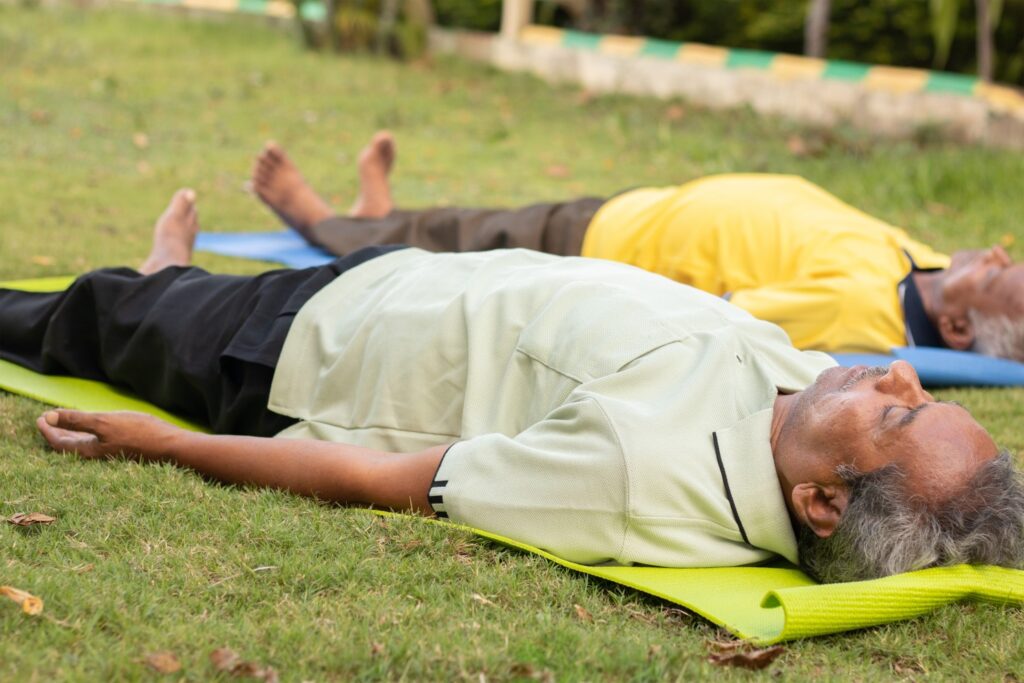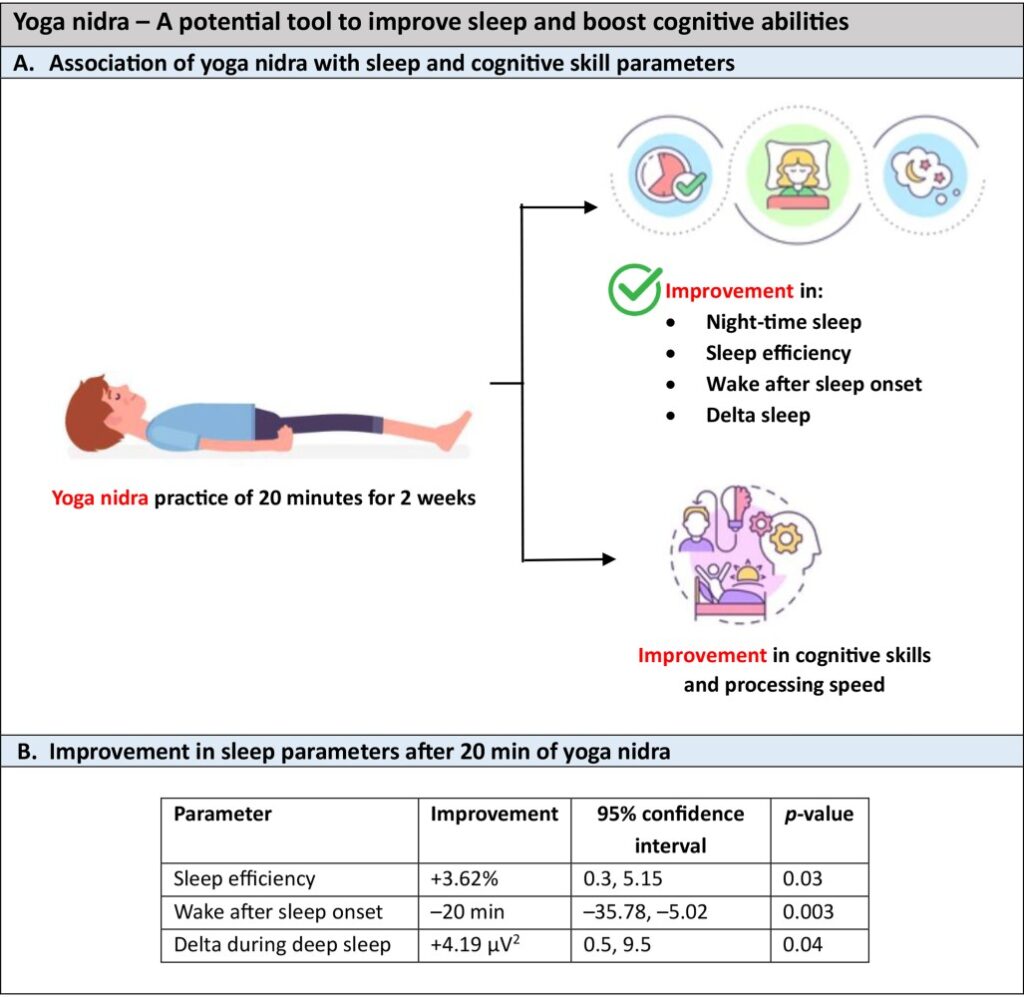
Yoga nidra, an easy-to-do yogic technique involving withdrawal of senses, reduces stress and improves sleep in patients with insomnia. Subjective improvement in sleep, cognitive scores, and self-observation notes has been found with yoga nidra practice, but the effect of yoga nidra on objective parameters in beginners has not been adequately studied.
A study by Datta et al., recently published in the journal “PLOS ONE”, reported that practicing yoga nidra for 20 minutes over 2 weeks improves sleep, cognition, learning, and memory, even in the beginners. There was an improvement in all cognitive abilities assessed and an increase in the percentage of delta waves in deep sleep following a 2-week intervention. The accuracy of learning and memory-related tasks was also increased.
This was a pre-post interventional pilot study including 41 healthy male volunteers with a consistent sleep-wake schedule (women were excluded from the study due to confounding effects of menstrual phases on sleep). It was conducted to evaluate the effect of yoga nidra practice on sleep and cognition using objective parameters. The study participants were asked to fill a sleep diary twice a day (in the morning after getting up and in the night before going to bed) at baseline for 14 days. A 20-minute pre-recorded audio session was used to conduct yoga nidra practice during the day. Objective sleep parameters using overnight polysomnography and cognitive function using cognition test battery were assessed before and after 2 weeks of yoga nidra practice. Assessments were done after 1 and 2 weeks of practicing yoga nidra. Repeat sleep diary and polysomnography was carried out after 4 weeks of practice.
The study results are summarized below:
- The patients using sleep diary subjectively reported significant improvement in total sleep time, sleep quality, sleep onset latency, and wake after sleep onset.
- There was an objective improvement in night-time sleep, sleep efficiency, and wake after sleep onset.
- Delta sleep of slow wave sleep improved significantly. This objective improvement has been a key factor in improving sleep quality. Improvement in attention, learning, memory, and performance has been linked with slow wave sleep enhancement.
- There was a significant improvement in reaction times for all cognitive tasks by yoga nidra practice, with no deterioration in accuracy of all cognitive battery tests, thereby implying an increase in processing speed. Key study results are depicted in the Graphic given below.
- An improvement in accuracy was also reported for visual object learning task, (95% CI: 0.08 to 0.17; p = 0.002), abstract matching (95% CI: 0.03 to 0.12; p = 0.02), and fractal-2-back test (95% CI: 0.02 to 0.13; p = 0.04).
- Following yoga nidra practice, accuracy of emotion recognition task increased for happy, fear, and anger stimuli (95% CI: 0.07 to 0.24; p = 0.004) and reduced for neutral stimuli (95% CI: –0.31 to –0.12; p = 0.04).

Clinical implications
- This study positions yoga nidra practice as a low-cost and accessible method to improve sleep quality and cognitive abilities across all age groups.
- It proposes implementation of yoga nidra practice, an easy-to-do technique, for better health of the overall population using standardized supervised model.
- Yoga nidra practice may have a potential role in patients with mild learning disabilities and cognition deterioration, especially in preventing cognitive decline in the older population.
(Source: Datta K, Bhutambare A, Mamatha VL, Narawa Y, Srinath R, Kanitkar M. Improved sleep, cognitive processing and enhanced learning and memory task accuracy with Yoga nidra practice in novices. PLoS One. 2023 Dec 13;18(12):e0294678. Doi: 10.1371/journal.pone.0294678)
